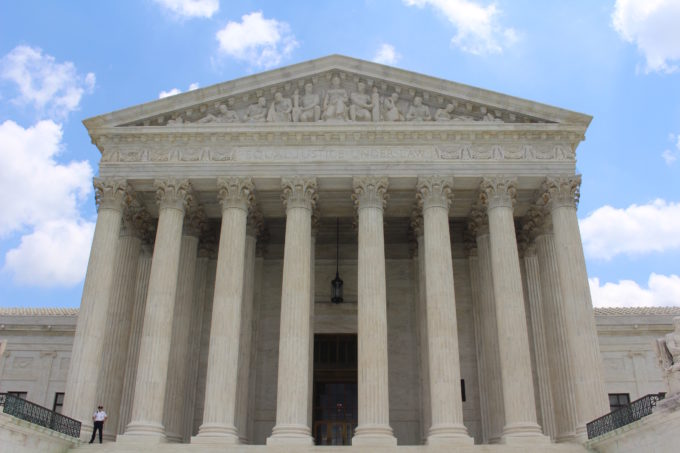
TC Heartland v. Kraft Foods: Supreme Court Hears Oral Arguments for Patent Venue Case
By Suyoung Jang – Edited by Grace Truong
On March 27, U.S. Supreme Court heard oral arguments in TC Heartland LLC v. Kraft Foods Group Brands LLC, No. 16-341 (Fed. Cir. Mar. 27, 2017). The justices weighed in on the question of whether proper venue for a patent litigation case is limited to the place of incorporation. The case has attracted buzz because the decision will have a significant impact on forum shopping in patent litigation cases.
Orrin Hatch, writing for Wired, provides an overview of the case. Dennis Crouch, writing for Patently-O, and Jeremy Dutra and Christopher Adams, writing for Global IP & Privacy Law Blog, provide commentary and analysis of the decision.
Headquartered in Carmel, Indiana, TC Heartland is a supplier of water enhancers and low-calorie sweeteners. Kraft brought a patent infringement action against TC Heartland in the U.S. District Court for the District of Delaware. TC Heartland argued that the District of Delaware is an improper venue, but both the district court and the Federal Circuit rejected that argument. Now the case has been appealed to the Supreme Court.
28 U.S.C. 1400(b) (“patent venue statute”) provides that a patent infringement case “may be brought in the judicial district where the defendant resides, or where the defendant has committed acts of infringement and has a regular and established place of business.” (Emphasis added).
Kraft argues—and the lower courts agreed—that 28 U.S.C. 1391(c) (“general venue statute”) defines the term “resides” for all venue purposes including the specific patent venue provision. The general venue statute provides that an entity with the capacity to sue and be sued “shall be deemed to reside … in any judicial district in which such defendant is subject to the court’s personal jurisdiction.” This effectively means that in a patent infringement case, a defendant is deemed to reside in any district where the defendant’s product was sold, opening up most venues for litigation.
On the other hand, TC Heartland argues that a 1957 Supreme Court decision that defines “resides” for patent venue purposes controls. In Fourco Glass Co. v. Transmirra Products Corp., 353 U.S. 222 (1957) hosted by justia.com, the Court concluded that corporations reside in “the state of incorporation only.” However, for the last 30 years, the Federal Circuit has found the general venue definition controlling and has allowed venue to be broad.
With this background, the Supreme Court heard oral arguments. The justices’ questioning reflected two themes: whether the Fourco definition is relevant in modern venue framework and whether Congress intended to overrule Fourco.
For instance, Justice Ginsburg seemed skeptical about the overly narrow venue definition proposed by TC Heartland. She pointed out that under Fourco, even principal place of business would not be considered a proper venue and emphasized that “there is no other venue provision for any other kind of claim that is so limited to just the place of incorporation.”
Another line of questioning focused on the text of the general venue statute and Congress’s intent. Attorney for Kraft, William Jay argued that §1391(c) defines residency explicitly “[f]or all venue purposes.” Representing TC Heartland, James Dabney pointed to the “except as otherwise provided by law” preamble to argue that §1391(c) does not touch the patent venue statute because Fourco provides the residency definition. Chief Justice John Roberts suggested support for this argument noting, “the current statute says ‘except as otherwise provided bylaw,’ [a]nd I would have thought that excluded overturning the Fourco decision.”
Justice Kagan questioned whether Congress even considered Fourco as the background when amending the general venue statute in 2011 given that the Federal Circuit has been ignoring Fourco for 30 years. Moreover, Justices Ginsburg and Kagan both noted that the American Law Institute recommended that Congress repeal §1400 yet Congress’s decision not to do so may suggest that the patent venue statute differs from the rest of the venue provisions.
Though the decision has the potential to significantly impact patent litigation, the justices dismissed the arguments and amici briefs addressing forum shopping and the concentration of patent cases in the Eastern District of Texas. Dennis Crouch, writing for Patently-O, suggests that this lack of interest suggests that the case is not a policy driven case but a question of statutory interpretation.